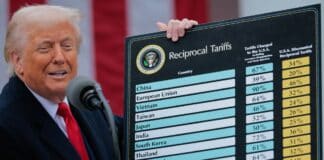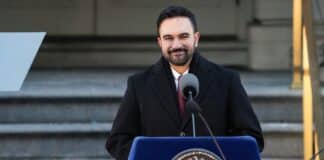Democratic Governors Tim Walz (Minnesota) and Laura Kelly (Kansas) are pulling nearly $100,000 in annual dues from the National Governors Association (NGA), citing the group’s refusal to challenge President Trump’s state-level policies. The decision follows internal Democratic complaints that the NGA has failed to confront Trump on military deployments, federal funding delays, and oversight testimony.
The withdrawal signals a breakdown in bipartisan cooperation at the state level. Walz and Kelly criticized the NGA for lacking public statements in opposition to Trump’s actions. They claim the association’s silence undermines its relevance, especially as Democratic governors face pressure from party activists to oppose Trump more aggressively.
The NGA, a historically bipartisan platform, requires consensus before issuing public positions. Incoming chair Gov. Kevin Stitt (R‑OK) responded by defending that structure, stating: “We shouldn’t be playing politics like they do in Washington, D.C.” Stitt said governors must lead their states, not use the NGA for national political messaging.
Vice chair Gov. Wes Moore (D‑MD) supported the withdrawal, calling Democratic concerns “justified.” Several Democratic governors are now reevaluating attendance and financial support for future NGA events, including the summer meeting in Colorado Springs. The split may mark the beginning of a broader Democratic retreat from bipartisan state forums.
The walkout reflects deeper divisions within the Democratic Party. Left-leaning governors and party operatives continue to demand stronger pushback against Trump, especially in the run-up to 2026 elections. The move away from bipartisan governance aligns with national Democratic strategies increasingly defined by ideological purity over institutional participation.
Conservatives argue the exodus exposes Democrats’ unwillingness to engage constructively. Republican governors maintain that the NGA’s value lies in its collaborative policy work, not political statements. They contend Democrats are weakening state influence by politicizing previously neutral platforms.
With bipartisan cooperation eroding, this split could reshape how governors influence federal-state relations and whether national associations like the NGA remain viable.





